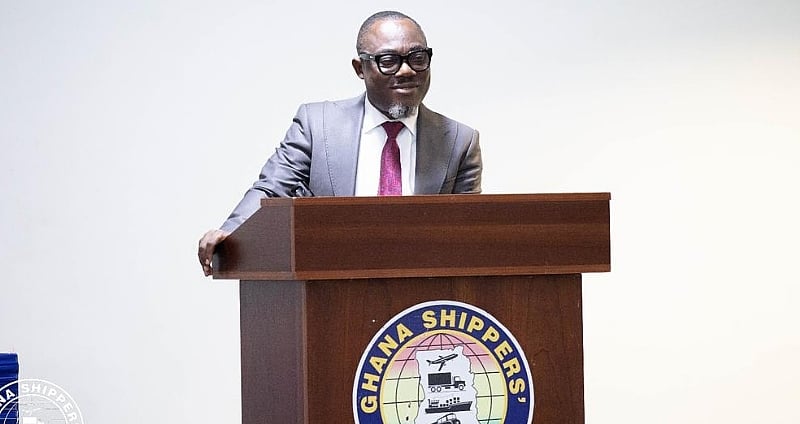Ransford Gyampo, CEO of the Ghana Shippers’ Authority, presents a refreshing contrast to the often-criticized spending habits of public officials. His leadership philosophy, rooted in personal ethics and fiscal prudence, is evident in the cost-cutting measures he’s implemented since his appointment. Gyampo’s approach is not merely a reaction to the Authority’s financial constraints but a deliberate effort to instill a culture of responsibility and accountability within the organization, reflecting a broader commitment to ethical governance. His actions resonate as a powerful statement in an environment sometimes characterized by extravagance and a sense of entitlement among public servants.
Gyampo’s commitment to frugality is perhaps most strikingly demonstrated by his insistence on flying economy class for official trips, a practice he believes is essential given the Authority’s financial situation. He views such measures not as sacrifices but as ethical imperatives, arguing that leaders of organizations facing financial challenges should not indulge in lavish perks. This principle extends beyond travel expenses. Gyampo has taken a comprehensive approach to cost reduction, including terminating non-essential contracts, renegotiating existing agreements for better terms, and suspending staff allowances and incentive packages. These decisions, while potentially unpopular, reflect his prioritization of the Authority’s overall financial health over individual comforts and expectations.
The financial strain on the Ghana Shippers’ Authority arose from a government directive to transfer surplus funds from public institutions to address national obligations. This directive, while serving a broader national purpose, placed significant pressure on the Authority’s budget. Gyampo responded proactively, implementing what he calls an “innovative response to cut expenditure.” This involved not only the aforementioned contract revisions and suspension of allowances but also a drastic reduction in foreign travel. Only essential trips are now approved, and all staff, including the CEO himself, are required to travel economy class. This policy underscores Gyampo’s belief that shared sacrifice is crucial during times of financial hardship and that leadership should set an example.
Gyampo attributes his values to his modest upbringing in Madina, Accra, and his background as a teacher and unionist. These experiences, he believes, shaped his understanding of responsibility and instilled a deep-seated aversion to wasteful spending. He expresses frustration at accusations of indulging in luxury office items, vehemently denying claims of purchasing a massage chair, and highlighting the incongruity of such allegations with his cost-cutting efforts. His personal life further reflects his commitment to fiscal responsibility, as he uses his government vehicle solely for official business, preferring to drive his personal car for private engagements. This clear delineation between public and private expenses reinforces his commitment to transparency and accountability.
Gyampo’s disciplined approach to leadership extends beyond personal conviction. He views it as a model for public service, hoping to inspire a shift in how public institutions are managed, particularly during financial difficulties. He challenges the prevailing sense of entitlement often associated with public office, advocating for a culture of responsibility and prudence. His actions at the Ghana Shippers’ Authority serve as a practical demonstration of his philosophy, offering a tangible example of how ethical leadership can translate into effective financial management.
Ransford Gyampo’s leadership of the Ghana Shippers’ Authority is not about grand gestures or pronouncements. It’s about the quiet, consistent application of ethical principles to everyday decisions. His insistence on economy class travel, his cost-cutting measures, and his transparent use of public resources send a clear message: public service is about stewardship, not self-enrichment. In a context where public trust is often eroded by perceptions of corruption and mismanagement, Gyampo’s approach offers a compelling alternative, demonstrating that ethical leadership is not just a moral imperative but also a practical necessity for effective governance. He embodies a commitment to changing the status quo, demonstrating that fiscal responsibility and ethical conduct can go hand in hand, ultimately benefiting both the institution he leads and the nation it serves.














